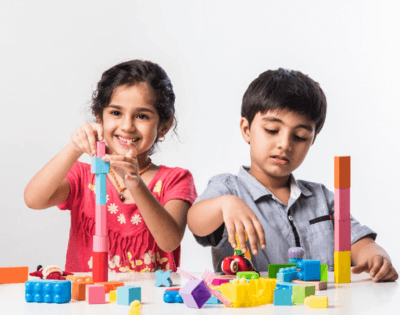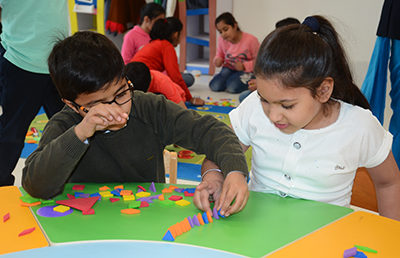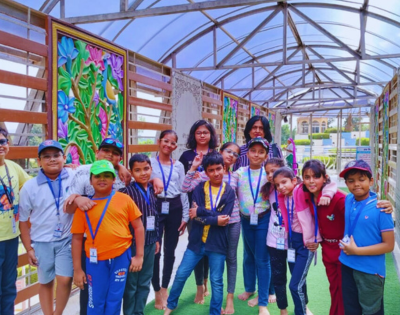Social skills refer to a set of abilities that enable an individual to interact and communicate effectively with others in various social situations. These skills include communication, empathy, problem-solving, teamwork, respect, self-control, responsibility, and many more.
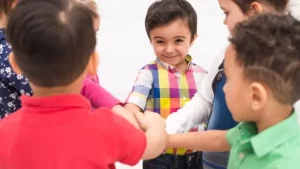
Social skills are essential for a child’s development for several reasons.
- Firstly, they facilitate positive communication and build strong relationships with others, which helps in creating a sense of belonging and social support.
- Secondly, these skills help children to develop self-confidence, emotional intelligence, and a positive self-image.
- In addition to this, social skills also aid in managing and regulating emotions, which is essential for mental and emotional well-being. Children who develop these skills are better equipped to handle stress and challenging situations, making them more resilient and adaptable.
- Furthermore, social skills enable children to navigate various social contexts, including school, home, and community, with ease and comfort.
Social skills are vital for every child’s growth as they help them navigate various social situations and build positive relationships. Here are 7 social skills that your child must have:
Communication Skills
Effective communication is the most important Social Skill that every child must have. Children should learn to express themselves clearly and respectfully while listening to others. In today’s society, it is important to teach the lesson of tolerance to children through positive communication. These skills help children build positive relationships, express their thoughts, and emotions effectively, and negotiate conflicts.
Empathy
Empathy is the capability to understand and share the feelings of others. Children who develop empathy find it easier to relate to other people’s challenging experiences and show sensitivity toward their feelings. This Social Skill is essential in building and fostering a sense of community.
Problem-Solving Skills
Children must develop problem-solving skills to navigate various social situations effectively. They should learn to identify problems and think critically to come up with effective solutions. This Social Skill helps children to handle conflicts, negotiate differences, and make better decisions.
Teamwork
Teamwork is an essential social skill that children must learn. They should learn to work with others to achieve a common goal, support each other, and collaborate effectively. In every phase of their lives, children will greatly benefit from being team players. This skill helps children to build positive relationships with their peers and colleagues, enhance their communication skills, and develop a sense of responsibility.
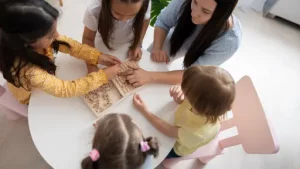
Respect
Above all, children should learn to respect others, regardless of their backgrounds, beliefs, or opinions. They should learn to treat others with kindness, courtesy, and empathy. This Social Skill helps children to promote and nurture a fair and just society that provides equal opportunities for all.
Self-control
Self-control is the ability to manage one’s emotions and behaviors effectively. Children should learn to regulate their emotions, handle stress, and control their impulses. This Social Skill helps children to enhance their Emotional Quotient, make better & informed decisions, and build positive relationships.
Responsibility
The understanding to be accountable for one’s actions and fulfill one’s commitments is a key facet of personality development. Parents should encourage kids to take responsibility for their behavior, work, and obligations. This Social Skill helps children to develop a sense of independence, self-confidence, and accountability.
In conclusion, Social Skills are an essential aspect of a child’s development as they aid effective communication, build strong relationships, foster emotional well-being, and contribute to academic, professional, and personal success. As parents and caregivers, it is crucial to provide children with opportunities to practice and develop these skills, both at home and in social settings. This is incorporated through social activities, group projects, and structured playtime, amongst others.


